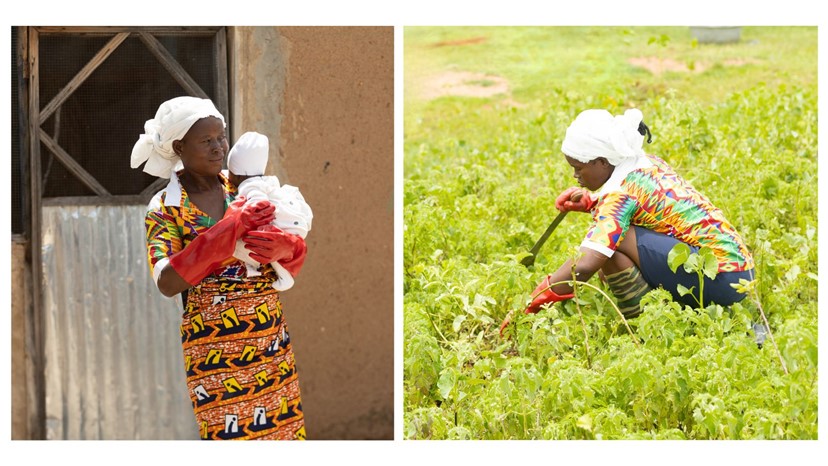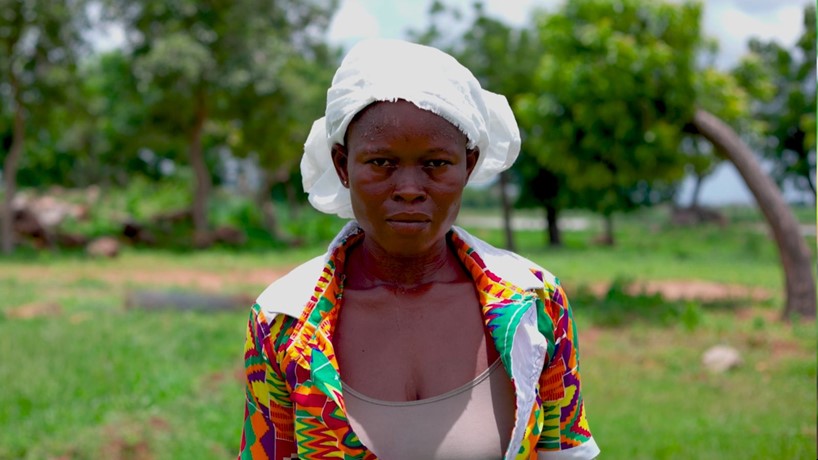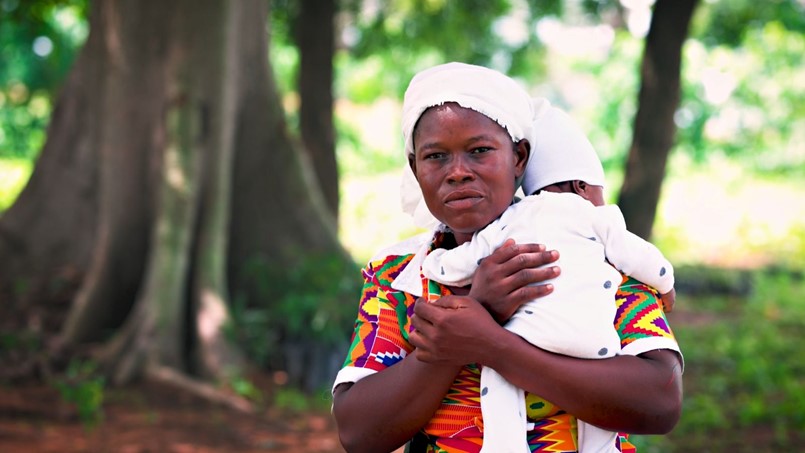
"If they give me seeds to grow, I can do it"
08th April 2024In an area of land next to a river in northern Ghana, activity is happening. Throughout the morning, women have been arriving. They come on foot, some by bike – all carrying precious cargo. After months of hard work and careful preparation, today is the day the women will come together to plant hundreds of tree seedlings.
It’s a perfect day for tree planting: hot, humid, and alive with the promise of the coming rainy season. After the many dry months, the rains are crucial for both the land and the community who live here. But like in many areas of Africa’s drylands, the climate crisis is making itself known. Droughts are longer. Soil is losing fertility. The community’s main water source, the VEA Dam reservoir, is in danger of disappearing.
But slowly, things are changing. And it’s the women who are leading the charge. Coming together to form cooperatives, women in the community have joined forces with Tree Aid and each other to regreen hectares of degraded land, build climate resilience, grow incomes and secure better futures.
Below, we meet just one of these incredible women.
Content warning: mentions of suicide.
Matilda's story: "If they give me seeds to grow, I can do it"
Sitting beneath the shade of a giant shea tree, is Matilda. At 30 years old, she’s a mother of three, a farmer and now, a university student. Taking a break to talk with us, Matilda sits with her newborn baby on her lap. Around her, the women are busily planting seedlings.
“My life started this way: I completed junior high in 2009. I was in year two when my parents couldn’t buy the tools that you need to do practicals, so I stopped.”
“In fact stopping at senior high I was not feeling well. I nearly even killed myself. I even went home and told my parents that if they can’t afford it, why did they give birth to me? One of my teachers at junior high advised me that I should just have patience and get something doing, in order to help me go back to school.”
Sadly, Matilda’s story is all too common. Across Africa’s drylands, women must shoulder the triple burden of being mothers, community members, and land workers. But six years later, Matilda’s husband supported her to return to school. Six years after this, she joined a Tree Aid project.
"Before the project, it wasn’t easy for me. Because doing the work and doing studies, sometimes you will be sitting and feeling lonely. But after the project came, we started making friendships. The projects made us to understand that trees are life.”
In rural African drylands, trees do mean life. They represent incomes, protection from the weather, and a sustainable and healthy food source. The cooperatives are also helping women to break long-held gender beliefs, which have traditionally restricted their access to land and the means of increasing their income through selling tree products such as shea butter or fruit and nuts. Coming together, the project has helped the women to break these barriers.
“I had a lot of training in the project. Women like us always think that some work [is for] specific people, that are the men. But through this project, we have learnt how to plant seedlings, water them, so that they can grow. And as of now, if they give me seeds to grow myself, I can do it.”
Working with nature to protect the land
 In the world of restoration, the women are using natural resource management. The idea is that local people can harness the power of trees to boost their crops and other agricultural income. Instead of cutting trees down to make way for crops and grazing, they’re managed alongside each other. The result is boosted soil fertility, and less erosion.
In the world of restoration, the women are using natural resource management. The idea is that local people can harness the power of trees to boost their crops and other agricultural income. Instead of cutting trees down to make way for crops and grazing, they’re managed alongside each other. The result is boosted soil fertility, and less erosion.
Matilda is just one of many women growing trees along the VEA Dam reservoir, in an attempt to strengthen and restore it as a safe and reliable water source. And the project has seen huge success: over 200,000 trees have so far been planted or regenerated, helping to stablise the banks and keep water in the reservoir when the rains arrive.
For Matilda and her community, this has been transformational. But the work is not done.

"I want to emphasise that previous years, most of [the trees], they have cut them. But because people came with this project and we are now planting trees, it is like trees are growing- we are getting back to our forefathers' time."
"For me individually it has helped me, how much more the community, the district, and the country as a whole, so they should continue to do the projects, because I know that with their support, in years to come, we will get to know the importance of trees."

